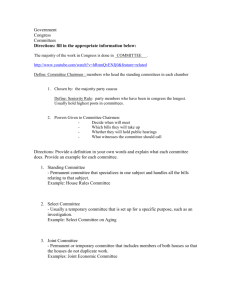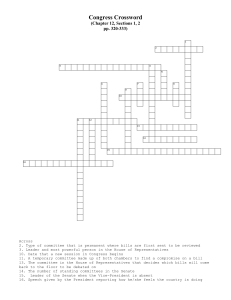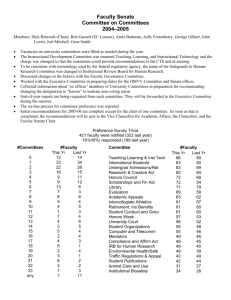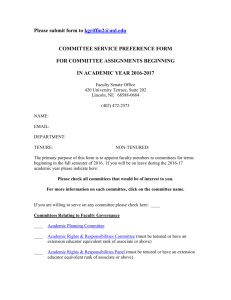Congressional Committees
advertisement
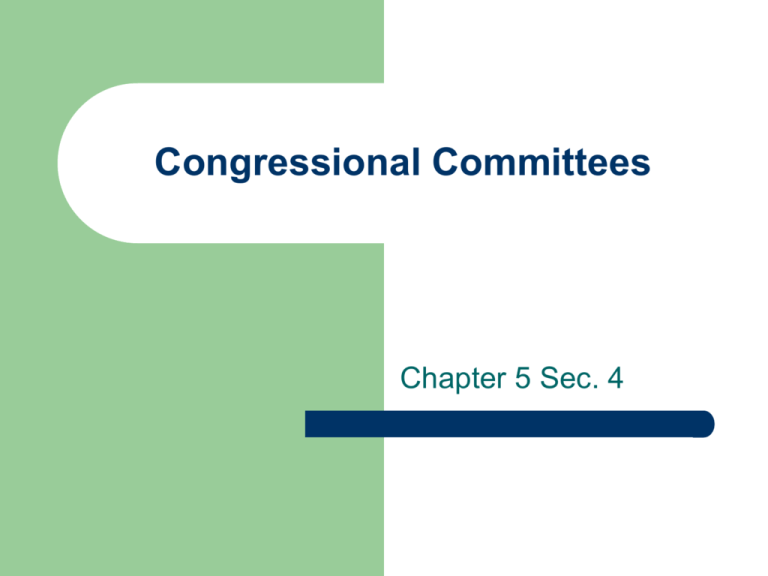
Congressional Committees Chapter 5 Sec. 4 3 main purposes of committees Allows members of congress to divide their work among many smaller groups. Committees pick those few bills that are to receive further consideration. Through investigations and holding hearings, committees help the public learn about key issues & problems facing the nation (ex. organized crime, drugs, airline safety) 4 Types of Committees Standing Select Joint Conference What are standing committees? Permanent/temporary? Permanent groups to oversee bills that deal with certain type of issues How many Standing Committees in house & Senate? List 3 of each 19 House of Rep. 16 Senate House: Agriculture, Appropriations, Armed Services Senate: Foreign relations, veterans affair, Judiciary What are Subcommittees? Part of Standing Committees specializing in a subcategory of that Standing Committee’s responsibilities Select Committees Temporary committees created by both houses of congress to study one specific issue and to report their findings to the Senate or the House Some Select Comm. Issues: Matters of great public concern (E-coli) Overlooked problems (homelessness, hunger) Problems of interest groups: Joint Committees Made up from members of both houses Usually act as study groups with responsibility for reporting their findings back to the Senate & the House Examples: Joint Economic Committee, Joint Committee on Library of Congress, Joint Committee on Printing Conference Committees A temporary committee set up when the House & Senate have passed different versions of the same bill. Membership: members from both houses from the standing committees working on the bill The title of the leaders of committees The Chairpersons A very powerful position in both houses: – – – – Make key decisions about the work of the comm. (which bills to consider, when to meet & how long) When hearings held: who’ll speak for/against bill They control the committee budget They manage debates that take place on the bills that come from their committees Seniority system The unwritten rule of seniority tradition has guided the selection of chairpersons Chairperson position is usually given to members of the majority party with the longest uninterrupted service on a particular committee Importance of Committee membership 3 Main reasons why: Membership on the right one can increase that rep./senator’s chances for reelection can mean the lawmaker will be able to influence national policy making (education, budget, health, foreign policy) Some enable a member to exert influence over other lawmakers because they deal with matters important to everyone ex. Taxation/appropriation, Rules comm. What does “Majority Party” mean? Advantages? The party with the largest membership in congress is known as the Majority Party The rest of the members belong to the Minority Party Advantages to being Majority Party: It will write the rules in congress Assigns committee membership, makes up majority of its membership Picks the chair of the committees
